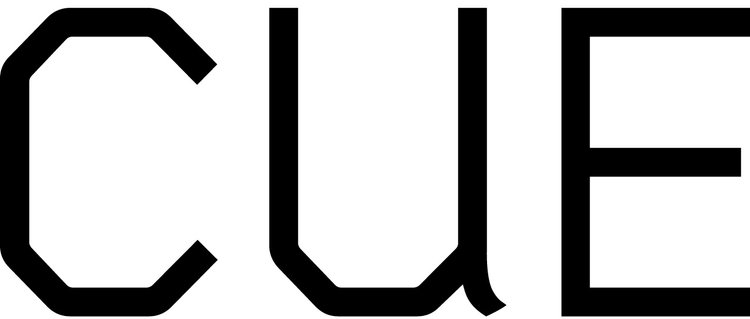A Kamayan Dinner Celebration for “Sometimes My Accent Slips Out” by Bhen Alan
Wednesday, May 22nd
6–8 pm (dinner 6–8; karaoke 8–11)
137 West 25th St
(between 6th and 7th Ave)
New York, NY
A Kamayan Dinner Celebration for
Bhen Alan: Sometimes My Accent Slips Out
Co-hosted by: Ontopo / Jon Santos
Date: Wednesday, May 22, 2024
Time: 6:00–11:00 pm
Event Schedule:
6–8 pm: Dinner by chef Woldy Reyes (ticketed, by invitation only)
8–11 pm: Karaoke with artist Bhen Alan (open to the public)
Tickets: See below
Please join us for a special event to mark the culmination of the solo exhibition Sometimes My Accent Slips Out by Bhen Alan. The evening will begin with an intimate meal by chef Woldy Reyes, who will present a contemporary plant-based kamayan dinner. Kamayan is an intimate feast with a longstanding precolonial history in the Philippines. Diners are seated at a communal table, and the food is sprawled out on banana leaves–encouraging guests to interact and eat with their hands. Kamayan brings people together and encourages informal talking, sharing, and gathering, much like the banigs (traditional Filipino mats) that inform Bhen Alan’s large-scale woven works.
Following the dinner, CUE will host a public karaoke event with the artist. Karaoke is often described as a national pastime in the Philippines. The event will make interactive use of the exhibition, particularly Alan’s large-scale hanging work, Mother Tongue, in the spirit of pakikisama (making others feel welcome, safe, and nurtured).
Join us to celebrate the artist and his work, and to activate the banigs with community presence.
Please note that the dinner is ticketed and by invitation only. The karaoke portion of the evening will be open to the public. If you have questions about attendance or logistics, please reach out to rsvp@cueartfoundation.org.
With support by:
All ticket proceeds benefit CUE’s mission and program to support emerging and underrepresented artists. Tickets are tax deductible minus $125.
Alternatively, you can consider making a contribution to our Spring Campaign, for which 100% of funds raised support CUE's mission and programs that embody the spirit of mentorship and peer learning, including our exhibitions that center under-supported and under-represented voices; our education program for teenagers; our writing program for young art critics; our robust exhibition-related performances, readings, screenings; and other public programs, and the resources we share with artists.
About Chef Woldy Reyes
Woldy Reyes is a Chef and Founder of the boutique catering company, Woldy Kusina, based in Brooklyn, New York. Woldy Kusina’s cuisine is centered around a simple philosophy — to provide good food and good experiences, with sustainability and culture at the heart of it all. As a first-generation Filipino American, Reyes effortlessly infuses contemporary dishes with vibrant flavors and colors that are inspired by his roots. Using only seasonal and locally sourced ingredients, his menus are best described as fresh, natural and fulfilling.
Woldy Kusina is recognized as one of New York’s top caterers and has been featured in goop and New York Magazine, with a noteworthy clientele that includes brands like 3.1 Phillip Lim, West Elm, Kosas, and Well+Good. His cooking has been highlighted on the TODAY Show and deemed by New York Times as an invigorating culinary experience that is “more about passion than precision.” His newest event series, Kamayan, aims to continue sharing admiration and respect for his Filipino heritage with a community of open minded and curious food lovers.
Artist Statement by Bhen Alan
In the Tagalog language, matingkad is used to describe colors or light. Its English translation, flamboyant, usually describes the character of a person. People have called me flamboyant due to the way I dress, my gestures, and how I approach my artmaking practice. I have learned to reclaim this identity, playing with the notion of flamboyance to draw out ideas of opacity and transparency.
Within the context of diaspora, where individuals are uprooted from their homelands and dispersed across the globe (by choice or not), the concept of visibility takes on profound significance in terms of culture and belonging. In my practice, I use weaving as a means of negotiating identity and expressing the multifaceted experiences of migration. Through camouflage, shapeshifting, and protection, I seek to underscore themes of resilience and adaptation in the face of displacement. Shapeshifting—the ability to adapt and transform in response to changing circumstances—is exercised by immigrants across the globe. As I manipulate materials to create diverse patterns of vibrant color, I endeavor to engage in a process of reinvention, blending old and new influences to craft narratives of hybridity while simultaneously embracing error, discombobulation, glitch, interruption, and obstruction in form and structure.
In my work, I use materials commonly found in both the Philippines and North America (such as indigenous leaves and grasses, feathers, paper, rattan, plastics, recycled and found objects, fabrics, and fibers) to conjure works that break new ground in terms of form and expression. The works became generative, as if they are growing in scale, texture, and pattern.
My weavings, in particular, serve as a portal to home, ancestors, and spirituality. They function as a gateway, allowing me to explore my identity and create work that challenges easy understandings of tradition and culture. Weaving practices, grounded in generations of making and creativity, serve a protective function and offer sanctuary to me and to my community. Woven works such as mats, baskets, and textiles serve as tangible embodiments of culture, carrying within their fibers the memories, traditions, and aspirations of people—and the places they call home.


